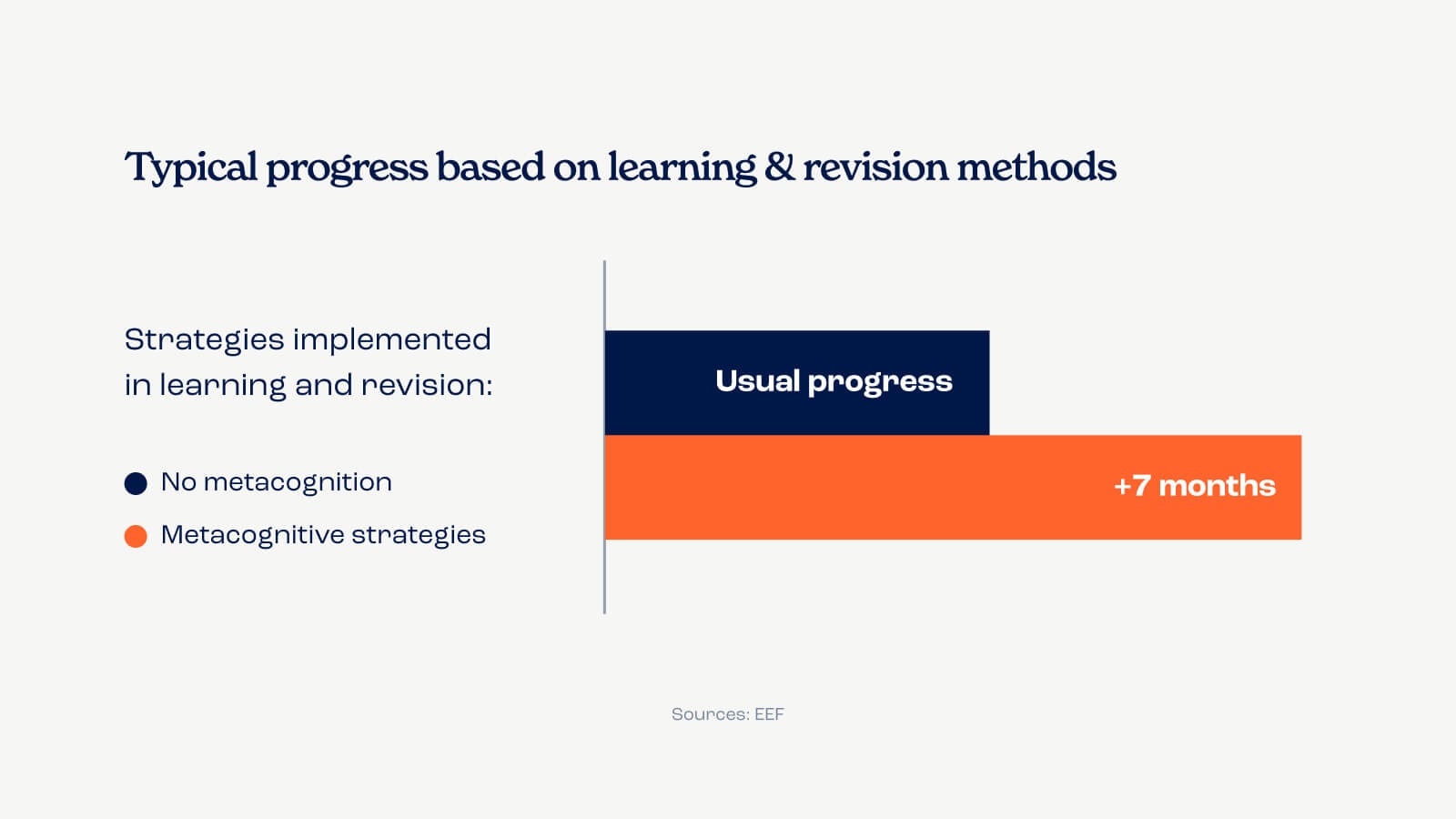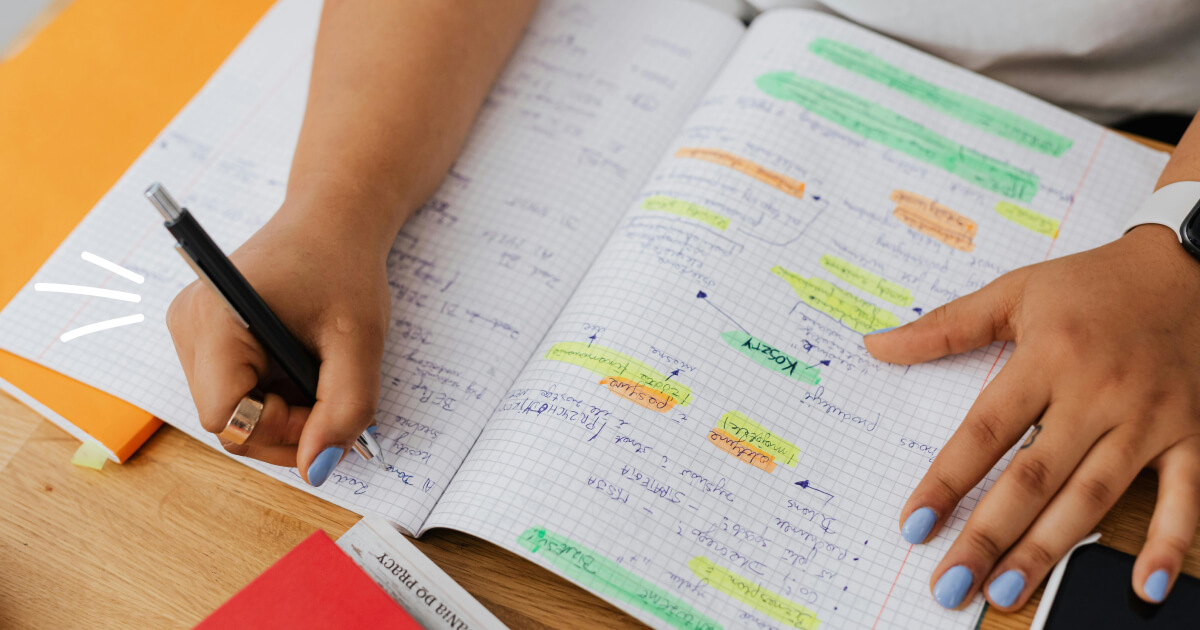Preparing for GCSEs can feel daunting - for both students and parents. Between packed timetables, rising grade expectations, and constant reminders that “these exams matter,” it’s no surprise many teens feel overwhelmed long before exam season begins.
But there’s good news. Alongside the tried-and-tested methods of revision - past papers, flashcards, and late-night note sessions - students now have a new study partner: AI (Artificial Intelligence). When used the right way, artificial intelligence can help students revise more efficiently, build confidence, and reduce stress.
This guide shares practical GCSE revision tips, explores the best AI tools for studying, and offers advice for parents looking to support their teens through this high-pressure period.
Why Effective Revision Is About More Than Just Cramming
One of the biggest misconceptions about GCSE revision is that more time equals better results. In reality, what matters most is how a student revises, not how long they revise for.
The brain doesn’t retain information well when overloaded. Spaced repetition, active recall, and regular breaks are proven to be more effective than hours of last-minute cramming.
According to the Education Endowment Foundation (EEF), strategies that encourage metacognitive awareness - getting students to think about how they learn - can lead to an average of +7 months of progress over the school year.

Traditional revision often falls short because it relies on passive methods, like rereading notes or highlighting textbooks. These feel productive but rarely lead to long-term understanding. To truly remember information, students need to engage with it actively - testing, teaching, or applying it in different ways.
Revision with a Plan
Revising without a plan often leads to procrastination or burnout. A structured timetable helps students feel in control and reduces last-minute panic. But what makes a good GCSE revision schedule?
Start by identifying key subjects and topics, then allocate blocks of time using the spaced repetition method: revisiting material regularly over days and weeks rather than cramming in one sitting.
Here’s a simple three-step framework to build an effective plan:
1. Audit strengths and weaknesses: Students should rank subjects or units from strongest to weakest. This ensures more time goes to areas that need it most.
2. Set realistic goals: Rather than vague “revise Biology” blocks, aim for clear, achievable tasks like “review osmosis notes + do 2 past paper questions.”
3. Build in rewards and downtime: Breaks are vital. Add rewards (like 20 minutes of free time or a snack break) after focused study blocks to maintain motivation.
Traditional Revision Techniques That Still Work
While digital tools are exciting, tried-and-true strategies remain essential. Flashcards, mind maps, and past papers form the foundation of effective revision. The Pomodoro technique, involving 25 minutes of focused study followed by a short 5-minute break, helps maintain concentration. And study groups offer a chance to test knowledge through discussion.
These methods aren't outdated - they're just better when complemented by smart tools.
How AI Can Help With GCSE Revision
AI has quickly become one of the most valuable tools for secondary-school students. Used wisely, it can make revision faster, smarter and more enjoyable. What’s more, the level of personalisation that comes with AI helps students make faster progress without burnout.
According to a 2024 Ofcom report, 61% of UK secondary students use AI tools at least once a week when revising.
What GCSE Subjects Benefit Most From AI Tools?
While AI has broad benefits, it’s especially helpful in some subjects over others. Here’s how it can be used strategically:
📘 English Language & Literature
AI tools like Grammarly and Quillbot help students improve spelling, grammar, sentence structure, and even tone. They’re also great for getting feedback on practice essays.
🔬 Sciences (Biology, Chemistry, Physics)
ChatGPT or Claude can break down complex terms, simulate flashcard sessions, or quiz students on equations and definitions. Caution: always cross-reference with class notes to avoid AI hallucinations.
📊 Maths
While AI won’t replace solving problems by hand, it can assist in checking steps, generating practice problems, and offering alternate explanations of tricky methods.
🌍 History & Geography
AI can summarise long content chunks and help with memory tricks, timelines, and cause-effect structures. But again—accuracy is key.
Note: AI is less effective for creative subjects like Art or Music, where feedback depends heavily on human interpretation. But even here, students can use tools to generate practice questions or manage time more effectively.
Top AI Study Tools for GCSE Students
Seneca Learning: Free and curriculum-aligned, it gamifies revision with adaptive difficulty and interactive content.
Quizlet Learn with AI: Generates smart quizzes and flashcards using uploaded notes, ideal for vocabulary and definitions.
ChatGPT / Gemini / Claude: Useful for summarising notes, simplifying complex topics, or generating practice questions.
Grammarly / Quillbot: Offer detailed writing support, especially for English and humanities subjects.
Notion AI: A digital workspace that can help create revision timetables, summarise content, and organise study sessions.

AI Pitfalls to Avoid in GCSE Revision
While AI tools can revolutionise revision, they also come with risks if used irresponsibly.
- Over-reliance: Students may be tempted to copy answers rather than engage with material.
- Accuracy: Some tools can give incorrect answers, especially in subjects like science or history - be sure to fact check against lesson notes or reliable resources.
- Academic honesty: JCQ guidelines state that any unacknowledged AI-generated content may be treated as malpractice.
Parents should discuss the ethical use of AI, reinforcing that it's a tool for learning - not a shortcut to cheat.
Boosting Focus & Reducing Stress
GCSE preparation isn’t just about knowledge - it’s also about mindset. Healthy habits improve memory, energy and confidence.
Encourage your teen to:
- Take regular breaks - 5 minutes for every 25 minutes of study.
- Exercise daily or spend time outdoors - just a brisk 20 minute walk per day does wonders for both mental and physical health (Fun Fact: it’s actually the top burner of belly fat!)
- Avoid multitasking; keep phones on silent during revision, or better still, in a separate room.
Apps like Forest and Focus To-Do gamify productivity and encourage concentration. A 2023 Pearson survey found that 80% of teens are more engaged when using digital platforms that track their progress.
How Parents Can Support Their Teen’s AI-Enhanced Revision
You don’t need to master the tech yourself - just help your teen use it wisely.
- Set boundaries: Define screen time limits and quiet study hours.
- Talk regularly: Ask what tools they’re using and what’s working.
- Promote responsibility: Encourage ethical use of AI and honest feedback.
- Explore tools together: Try apps side-by-side to build confidence and reduce resistance.
Combine Small-Group Tuition with AI Tools
While AI supports self-study, the value of tuition and human-led feedback cannot be ignored. Our small-group tutoring ensures students get the guidance they need. At Learning Cubs, we:
- Provide personalised support in English, Maths and Science
- Help students develop independent revision techniques
- Integrate AI tools into lessons to improve engagement and retention
The Future of GCSE Revision Is Hybrid
GCSE revision is changing. Flashcards still matter. Past papers still matter. But now, AI tools can make these methods quicker, easier, and more targeted.
With support from parents, structured tutoring, and a few smart tools, your teen can revise more effectively - and feel more confident doing it.
FAQs
What’s the best AI tool for GCSE revision?
Seneca Learning and Quizlet AI are highly recommended for their curriculum alignment and active learning approach.
Can students use ChatGPT to revise for GCSEs?
Yes, for explanations, quiz generation, and note summaries. Students should fact-check responses and avoid using it for coursework.
Is using AI in revision considered cheating?
No, not if it’s used to support understanding. Using it to complete assessed coursework is not allowed.
How much revision should GCSE students do each day?
During exam season, 2–3 hours per day is a good guide. Quality trumps quantity.
Does Learning Cubs use AI in tutoring?
Yes - where helpful, we integrate AI tools for revision planning, comprehension support, and topic testing.
















